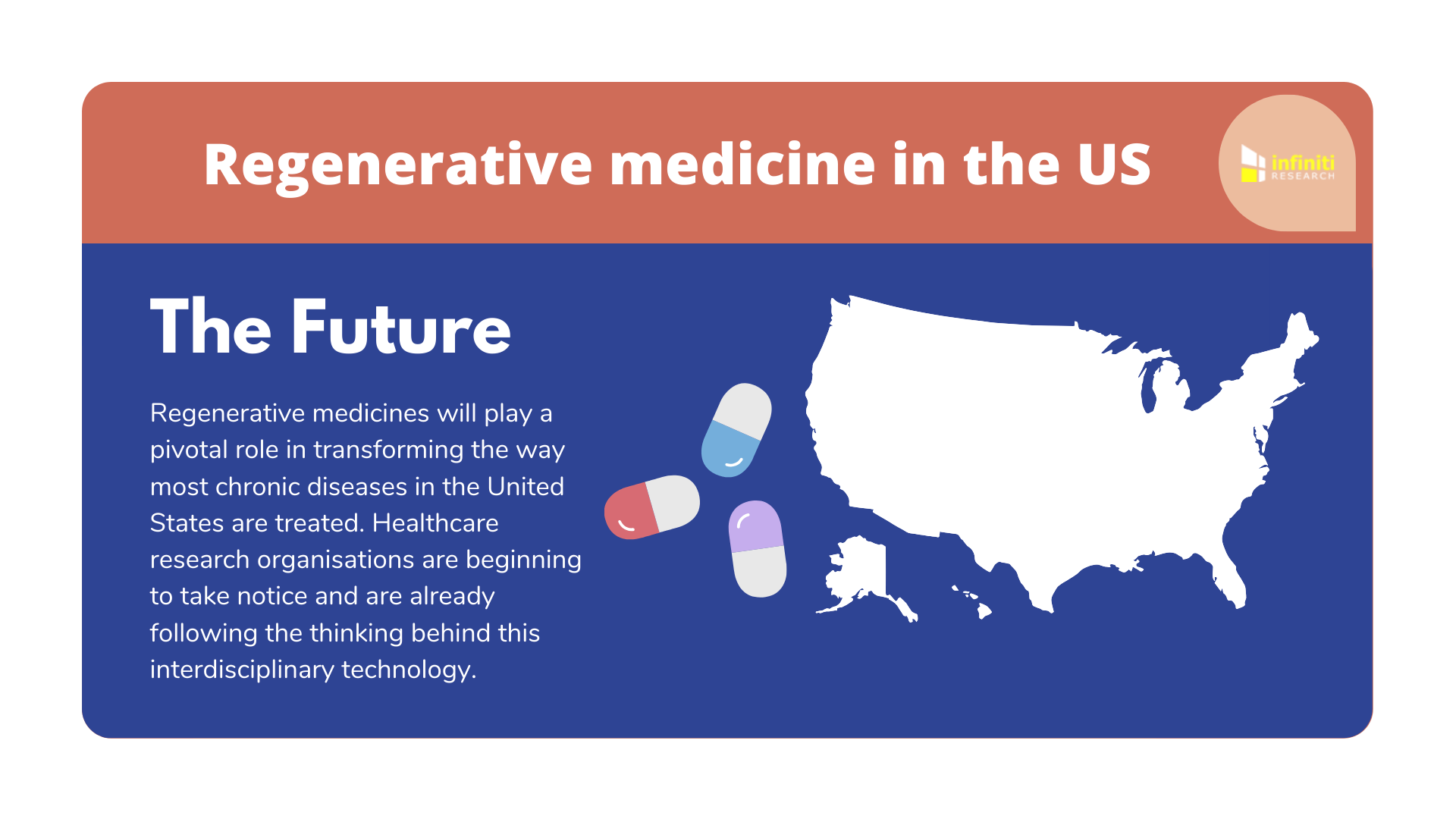Regenerative medicines are currently the hive of innovation in modern science with far-reaching benefits for big pharma, healthcare systems, and patient outcomes. We can expect a rapid pace of development in the US regenerative medicine market over the next decade. Some of the key factors fueling demand include the increasing investments in R&D activities and the rising incidence of chronic diseases in the country. Leading vendors have enhanced their R&D investments to develop innovative medical therapies, which is driving the overall growth of the market.
Furthermore, M&A and strategic alliances among vendors will have a significant impact on the overall market growth and innovation. Nevertheless, the actual delivery of regenerative medicines has proven to be rather challenging with several roadblocks to commercially viable therapies that are capable of catering to unmet clinical needs. In this article, based on a series of discussions with industry analysts at Infiniti Research, we highlight some of the most relevant and pressing manufacturing challenges in regenerative medicine products.

The promise of regenerative medicines requires an innovative look at the complete product lifecycle, including the development of an efficient distribution network. Planning to venture into this space? Request a free proposal for comprehensive insights into the market.
Regenerative medicines – Manufacturing challenges
Manufacturing expense
Cell therapy manufacturing processes are generally highly expensive. Scaling up from limited laboratory facilities to automated systems for bulk production will largely be based on cost, therefore impeccable financial and time planning become vital. As a first-generation technology, stakeholders can expect greater stakeholder tolerance for higher pricing, but this will only be for a limited time period.
Design quality
After collecting sufficient evidence of the clinical effectiveness of regenerative medicines, bioreactor technologies are considered for the manufacture of regenerative medicine products. But even minor process changes at this stage will require new validation of the product performance. So, in the case of automation, robots manually reproduce the existing inefficient manual processes due to which the products are often based on obsolete technologies. As a result, the manufacture of regenerative medicines sometimes misses the opportunity to improve their quality by innovating process design.
The personalization and unique requirements of regenerative medicines require manufacturers to provide increased focus on the precision and accuracy of processes. Get in touch with an expert from Infiniti research to identify gaps in your existing processes and bridge them with viable business strategies.
Biomaterials challenges
Challenges relating to biomaterials are mostly concerned with their selection than manufacturing. The trends in material selection will eventually have a major impact on the manufacturing process. As traditional synthetic biodegradable polymers and a few bioactive ceramics that have been manufactured through conventional routes are no longer considered ideal, attention is now being turned toward biomaterials that have more relevant biological properties. But since they have critical nanostructural features, and may involve self-assembly and environmental responsiveness, they may not be compatible with normal top-down manufacturing and therefore could require changes in the production process.
Supply chain challenges
The clinical supply chains required to deliver regenerative medicines therapies are arguably the most complex the industry has seen so far, even more so than for biologic medicine. At present, while billions of dollars are being spent on regenerative medicine research and clinical studies, resources are yet to be allocated to the management and delivery of innovative medical therapies at scale. Furthermore, progress by the pharma industry in coming into compliance with the FDA’s regulations for regenerative medicines has been slow. This makes the process of bringing regenerative medicines at scale to the market even more challenging.
To learn more about our portfolio of solutions – Request a brochure.


